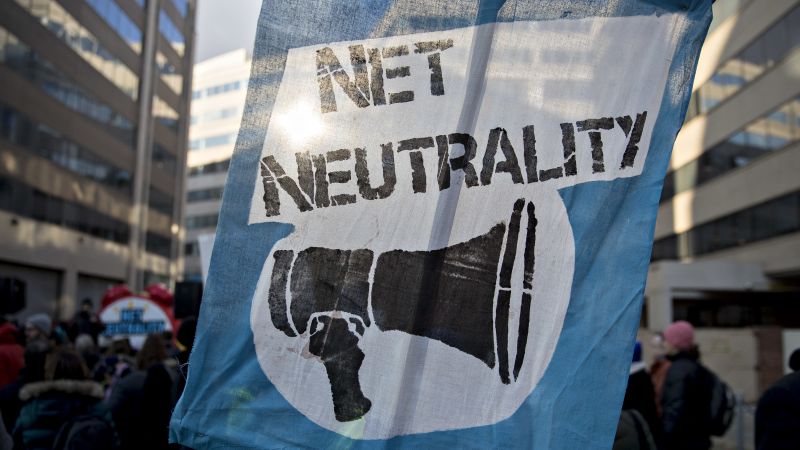The US government reinstated net neutrality regulations that were rescinded during the Trump administration, prohibiting ISPs from meddling in internet speeds for customers. The rules give the FCC greater regulatory power over the broadband industry, classifying internet service similarly to legacy telephone lines. The vote marks a win for consumer advocates who argue that net neutrality is essential to ensure equal treatment of all websites and to prevent ISPs from shaping internet access based on financial interests.
FCC Chairwoman Jessica Rosenworcel emphasized that the vote also aims to protect consumer privacy and prevent the sale of personal data by internet providers. The decision is seen as a victory for consumers, public safety, national security, and network investment. The move is part of a broader effort to empower the FCC to address issues such as spam robotexts, internet outages, digital privacy, and expanding high-speed internet access. The aim is to provide clearer authority for the FCC to enforce rules governing various aspects of the digital landscape.
Opponents of net neutrality rules, including ISPs, have criticized the decision as heavy-handed government intervention, arguing that consumers would not stand for content-based network manipulation. They claim that the regulations could hinder investment in high-speed networks. However, consumer advocates maintain that without regulation, ISPs could potentially dictate which websites load faster based on financial incentives, which could limit competition and consumer choice. The battle between regulators and industry stakeholders continues to unfold, highlighting the ongoing debate over the role of government in regulating internet access.
The history of US policies for network providers has been marked by multiple changes over the past decade, with each new administration bringing its own stance on net neutrality. The recent move to reinstate net neutrality rules based on Title II authority signals a shift towards more stringent oversight of the broadband industry. Industry groups are expected to challenge the rules in court, setting the stage for a legal battle that could have far-reaching implications for US regulatory bodies. The outcome could impact the FCC’s authority to regulate ISPs and set precedents for future regulatory actions.
Republican commissioners at the FCC have criticized the decision, describing it as a power grab that could stifle innovation and investment in broadband infrastructure. The debate over net neutrality rules reflects broader discussions around the balance between government regulation and industry freedom in the digital age. The legal challenges that lie ahead will test the FCC’s authority and the reach of federal executive power in light of a changing regulatory landscape. The outcome of the legal battle could shape the future of internet regulation in the US and have implications for regulatory bodies beyond the FCC.















